
Written By: Sofia Layarda, MPH
Title: Master of Public Health
Alumni: University of California, Berkeley
Last Updated on:

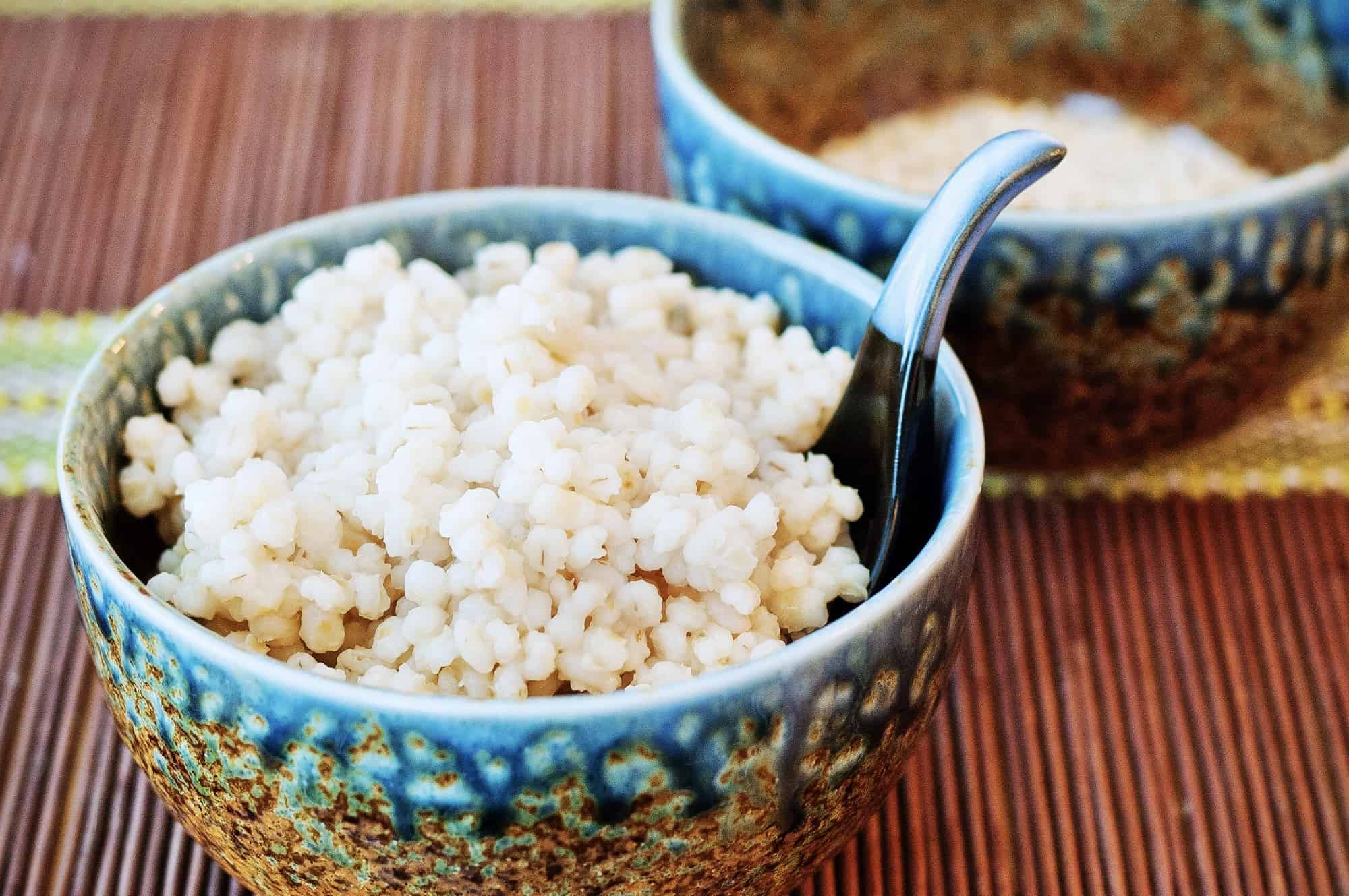
When you hear barley, many of you may think beer, but in its whole grain form (called hulled or dehulled), barley is a nutty, hearty choice to add to your favorite soup, salad, or pilaf. As a cereal crop, barley has been cultivated for thousands of years. The Romans referred to gladiators as “hordearii,” which meant eaters of barley.
You can purchase different forms of barley. With only the inedible outer hull removed, the hulled version is the whole grain form. It’s sometimes difficult to find hulled barley. The closet form to hulled barley is pot barley. Pot barley is sometimes called barley groats at the stores (confusing, isn’t it?) Don’t be confused with pearled barley, which have had more of their nutritious germ and bran sections polished off and no longer constitute a whole grain.
Not surprisingly, hulled barley takes the longest to cook. Nowadays, you may also find barley flakes or barley grits, which cook faster, but read the label to make sure they are made from hulled barley instead of pearled barley.
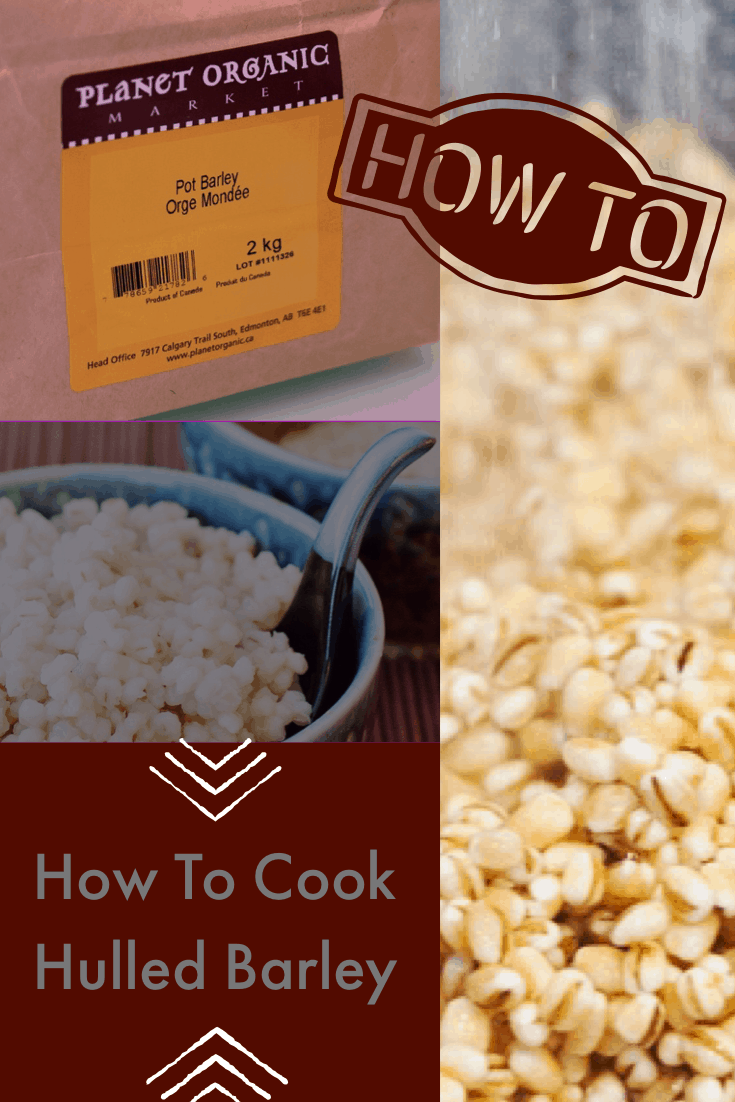
Table of Contents
Starting Amount: 1/2 cup raw
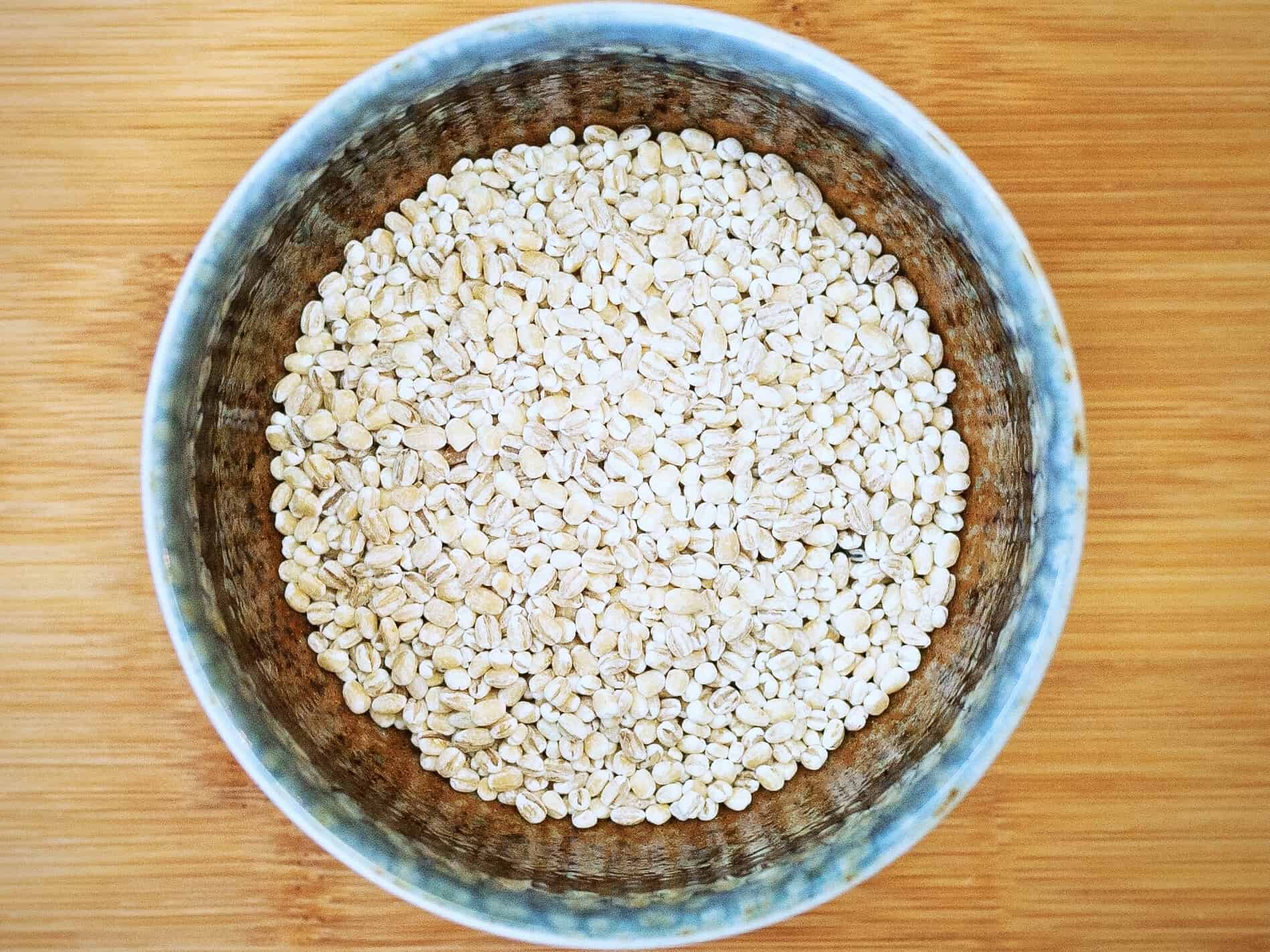
Pre-Soaking Requirement: No.
Pre-Rinsing Requirement: Yes. Rinse under running water, then drain well.
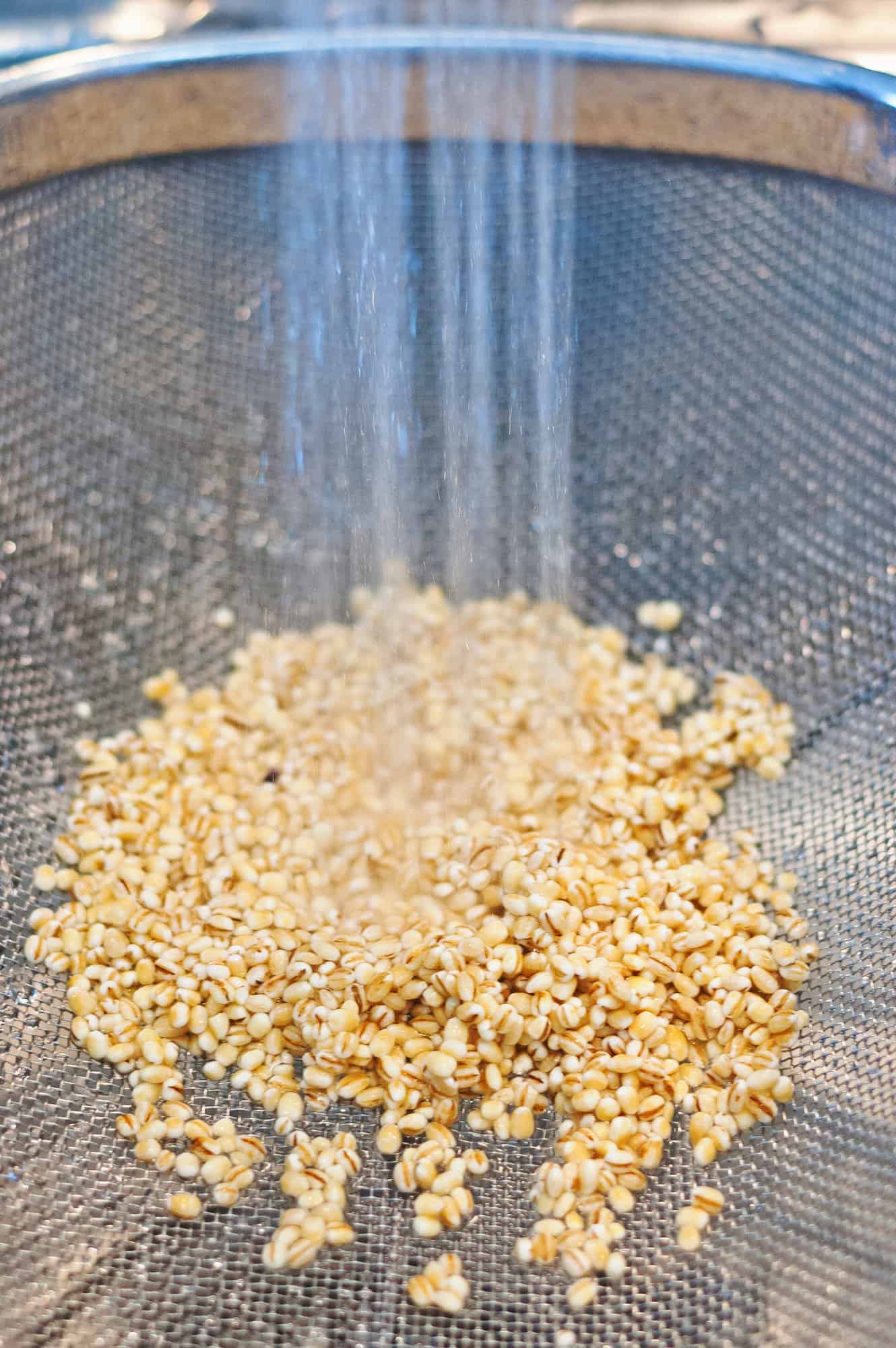
Cooking Liquid: 1.5 cups liquid
Cooking Time: First, bring liquid to boil. Once boiling, add the rinsed barley and return to boil. Then reduce the heat to low, cover, and simmer for about 45 to 60 minutes. At this point, have a taste; the kernels should be chewy yet tender. If the center of the kernel is still starchy or hard, you may need to let the grain simmer for another 10 to 15 minutes. You may have some excess cooking liquid even after the grain is done to your liking; simply pour off and use the cooked grain in your favorite recipe.
Resulting Yield: 2 cups
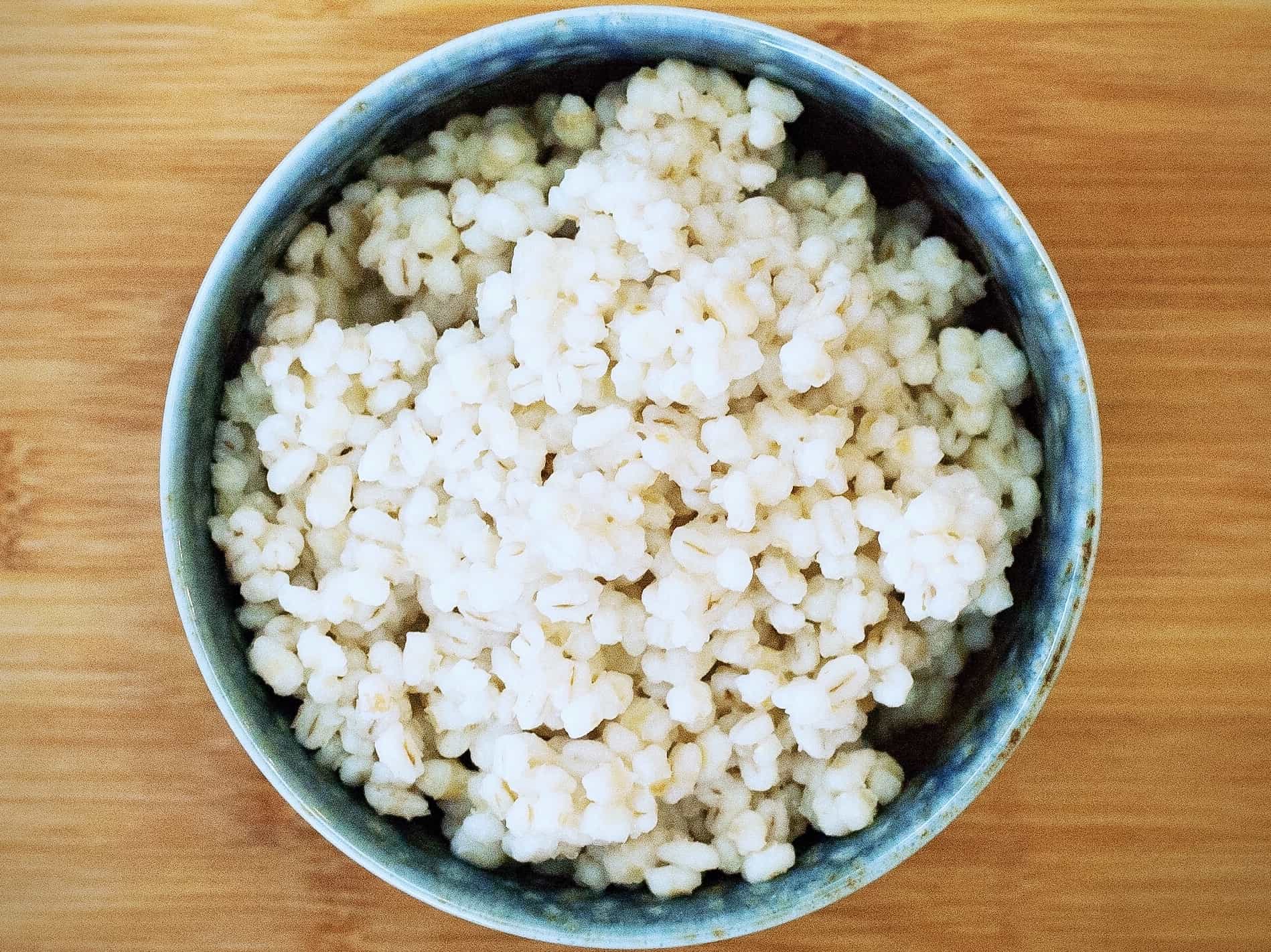
Nutritional Information (per 1/2 cup cooked, hulled barley)
Alumni: University of California, Berkeley – Sofia believes in bringing back fun and pleasure into everyday eating. She loves cooking, and is constantly experimenting with ingredients, creating recipes and trying them out on family and friends. Her latest interest lies in finding realistic and practical ways of environmentally-friendly food/eating habits.
, home cooking, how to cook, vegetarian, whole grains
3-Ingredient No-Bake Blueberry-Oat Dessert Bar
Eggs 101: Are Brown Eggs Healthier Than White? Nutritional Differences in Eggs
Thank you so much for this article. I was not sure what to do with “hulled” barley. Turns out to be the same and the details you gave are incredibly good and solid information.